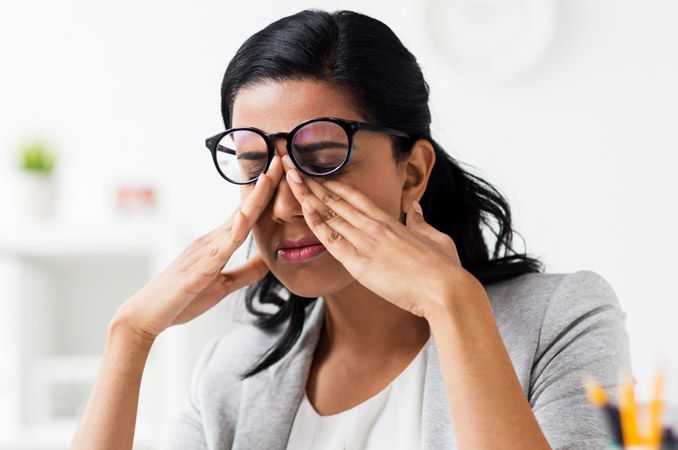Eye twitching: Causes, treatments and prevention of myokymia

What is eye twitching?
Eye twitching — which actually is twitching of an eyelid — is common and harmless.
Most eye twitching lasts only a few minutes, but sometimes an eyelid twitch can persist for days or longer. If you have an eye twitch that doesn't go away relatively quickly, see an optician.
The medical term for eye twitching is myokymia.
If you experience eye twitching that doesn't go away, this could signal a serious neurological condition affecting the eyelid — such as blepharospasm or hemifacial spasm. These relatively rare conditions are more obvious and severe than common eye twitching and should be evaluated immediately by an optician.
Source: All About Vision
What causes eye twitching?
Triggers of eye twitching include:
Stress
Fatigue
Eye strain
Caffeine
Alcohol
Dry eyes
Nutrition problems
Allergies
If you often experience eye twitching, take a close look at this list and note which of these potential triggers might apply to you. Sometimes, making minor changes to your diet and lifestyle can significantly reduce your risk of eye twitching or help make an eyelid twitch disappear.
Causes of an eye twitching
1. Stress
Stress is probably the most common cause of eye twitching. Yoga, breathing exercises, spending time with friends or pets and getting more down time into your daily routine are ways to reduce stress that may be causing your eyelid twitch.
2. Fatigue
Lack of sleep, whether because of stress or some other reason, can trigger eye twitching. Catching up on your sleep and having a consistent sleep schedule can help.
3. Eye strain
Eye strain — particularly digital eye strain from overuse of computers, tablets and smartphones — also is a common cause of eyelid twitching.
Follow the "20-20-20 rule" when using digital devices: Every 20 minutes, look away from your screen and allow your eyes to focus on a distant object (at least 20 feet away) for 20 seconds or longer. This reduces fatigue that may trigger eye twitching.
Also, ask your optician about computer glasses to relieve digital eye strain.
4. Caffeine
Too much caffeine can trigger eye twitching. Try cutting back on coffee, tea and soft drinks (or switch to decaffeinated versions) for a week or two and see if your eye twitching disappears.
5. Alcohol
If you experience eye twitching after drinking beer, wine or spirits, try abstaining for a while, since alcohol consumption may cause eyelids to twitch.
SEE RELATED: How alcohol affects your vision.
6. Dry eyes
Many adults experience dry eyes, especially after age 50. Dry eyes are also very common among people who use computers, take certain medications (especially antihistamines and some antidepressants), wear contact lenses and consume caffeine and/or alcohol.
If you have a twitching eyelid and your eyes feel gritty or dry, see your optician for a dry eye evaluation. Restoring moisture to the surface of your eye may stop the eye twitching and decrease the risk of twitching in the future.
7. Poor nutrition
Some reports suggest a lack of certain nutritional elements, such as magnesium, can trigger eyelid spasms. Although these reports are not conclusive, this may be another possible cause of eye twitching.
If you are concerned that your diet may not be supplying all the nutrients you need for healthy vision, discuss this with your optician before purchasing over-the-counter nutritional supplements.
SEE RELATED: How to boost your diet to protect ageing eyes
8. Allergies
People with eye allergies can have itching, swelling and watery eyes. Rubbing your eyes because of allergy symptoms releases histamine into your eyelid tissues and tear film, which may cause eye twitching.
Sometimes, over-the-counter eye drops formulated to reduce allergy symptoms can be helpful. But antihistamines in these drops can cause dry eyes. It's best to consult your optician to make sure you're doing the right thing for your eyes if you experience allergy symptoms and eye twitching.
Another way to stop eye twitching: Botox
In rare cases, some eye twitching just won't go away, despite applying the remedies above.
Persistent eyelid twitches can be treated with Botox injections to stop the involuntary muscle contractions in the eyelid that cause the twitching.
When to see an optician
See an optician immediately if you experience persistent eye twitching, sudden changes in appearance or movement of half your face (including your eyelids), or if both eyelids clamp down so tight it's impossible to open your eyes. These can be signs of a serious condition.
Page published on Thursday, 27 June 2019







